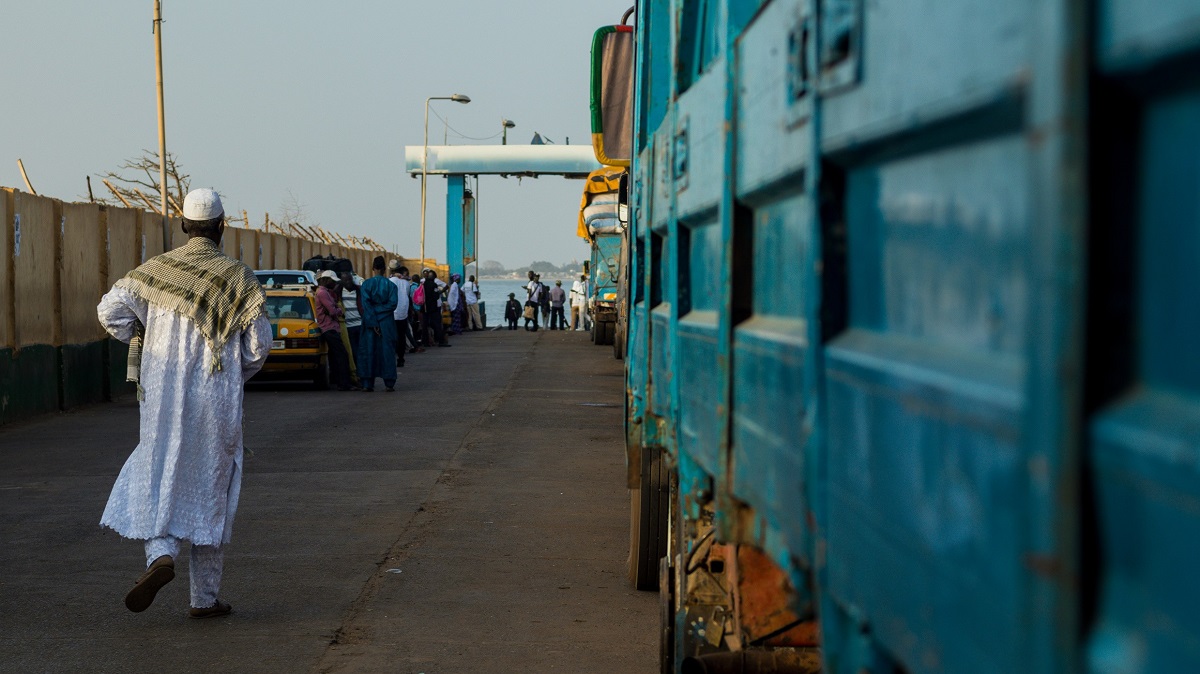UNCTAD’s ASYCUDA customs automation software helps the West African country boost its trade potential and collect record customs revenue in 2023.

© Adobe Stock/Anze Furlan | Trucks waiting in a queue at a port terminal in Banjul, Gambia.
The Gambia, mainland Africa’s smallest country, saw a 23% increase in customs revenue in 2023, one year after rolling out the latest version of UNCTAD’s Automated System for Customs Data software (ASYCUDAWorld).
The Gambia Revenue Authority reported record monthly revenue collections in March 2023, reaching 1.5 billion Gambian Dalasi (approximately $22.1 million, using the current exchange rate), a figure that was exceeded in July with D1.6 billion (about $23.6 million).
By the year’s end, customs revenue hit D15.6 billion (about $230 million), surpassing the government’s target for 2023 by 4%.
Announcing the results, Gambia Revenue Authority Commissioner General Yankuba Darboe, highlighted the impact of reforms and strategies to improve efficiency and transparency and optimize revenue collection, saying UNCTAD’s ASYCUDAWorld system’s contribution was “immense”.
"The immediate impact of the joint effort between UNCTAD and the Gambia Revenue Authority in financial terms is impressive,” said Shamika N. Sirimanne, UNCTAD’s director of technology and logistics.
Streamlining trade in The Gambia
The implementation of ASYCUDAWorld, part of broader efforts with UNCTAD to streamline customs processes and enhance trade facilitation, has been pivotal in modernizing the West African country’s customs operations. In 2022, around 80% of customs payments were made electronically.
The country’s finance and economy minister, Seedy Keita, said the new customs automation software would “significantly enhance the ease and speed of doing business in The Gambia, which is essential for us to realize our dream of becoming a competitive and favourable destination for foreign direct investment”.
The nation, with its narrow coastline opening to the Atlantic Ocean, relies heavily on trade, exporting mainly food items, including nuts and fish, along with agricultural raw materials like unprocessed cotton. It imports primarily other foodstuffs, fuel and machinery.
Building on a history of collaboration
UNCTAD and the Gambian government’s collaboration on customs automation traces back to 1999 with the launch of the country’s first customs management system. The long-standing partnership took a significant step forward in 2019 with the project to upgrade to the more advanced ASYCUDAWorld system, with funding from the African Development Bank (AfDB).
The pivotal project involved building a national ASYCUDAWorld prototype and required fundamentally reforming the country’s customs processes and supporting the government to introduce new regulations.
Laying the groundwork
Ahead of the ASYCUDAWorld launch, UNCTAD undertook substantial preparatory work to ensure its successful implementation. This included training government officials to ensure they could fully manage and take ownership of the new system.
Workshops were also organized to familiarize the business community with the system's benefits and the forthcoming changes to their operational procedures.
Ms. Sirimanne said UNCTAD expects the ASYCUDAWorld system to continue improving customs clearance efficiency and revenue collection in the coming years, further boosting the Gambian economy, and improving its trade potential.
ASYCUDA (Automated System for Customs Data) is a computerized customs management system developed by UNCTAD, boosting international trade efficiency.
Over the past four decades, it has helped more than 100 countries modernize their customs processes, streamlining billions of transactions and playing a vital role in trade facilitation, economic growth and revenue enhancement.



